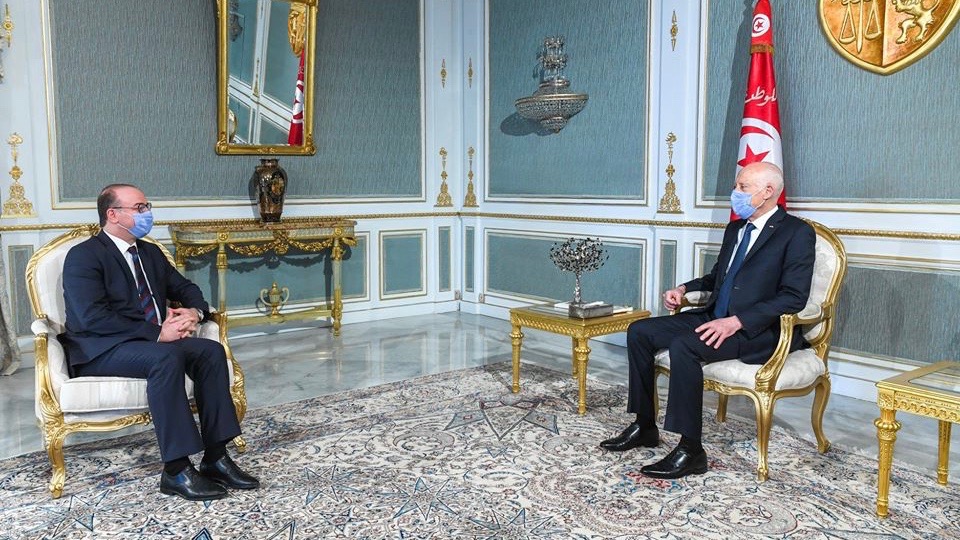Tunisian prime minister Elyes Fakhfakh resigned from his post on Wednesday, July 15 after less than five months in office. The decision to resign came after his meeting with president Kais Saied. The resignation was prompted after more than 105 lawmakers filed a no confidence motion against him in the Tunisian parliament earlier in the day.
The president met the prime minister along with the speaker of the Tunisian parliament Rachid Ghannouchi and the secretary general of the Tunisian General Labour Union. This was after Ennahda, the largest party in the parliament and part of the coalition supporting him, had asked Fakhfakh to resign.
#Tunisia: President Kais Saied announced at meeting with the Prime Minister, the Parliament Speaker and @UGTT_TN Secretary-General he had received on Wednesday morning @ElyesFakhfakh's resignation as Prime Minister, said @TnPresidency. #TAP_En
— TAP news agency (@TapNewsAgency) July 15, 2020
Ennahda cited lack of confidence in the government led by Fakhfakh after the news of alleged clash of interest emerged in the local media. According to the local media an independent member of the Tunisian parliament had published documents indicating Fakhfakh owned shares in some companies which have won contracts worth USD 15 million from the government.
Now the president has a week’s time to designate a new prime minister who will have two months to prove majority in the parliament. There are 217 seats in the parliament out of which the Ennahda-led coalition that won last year’s elections, has the support of 106 MPs.
Elyes Fakhfakh was appointed as prime minister by the president in January this year. Parliament approved him as prime minister on February 28/ He is the eighth prime minister of the country since the popular movement forced long serving president Zine El Abidine Ben Ali out of power in 2011 and established a new system.
The successive governments in the country have failed to improve the economic conditions in Tunisia which have become even worse due to the COVID-19 imposed lockdown. The lockdown has harmed the country’s tourism industry which is one of the largest employers and has significantly raised the number of unemployed. Several waves of protests have occurred in the past couple of weeks in the southern regions against the worsening economic conditions and to demand jobs.
As of July 16, Tunisia has 1,327 confirmed cases of COVID-19 and 50 deaths.





